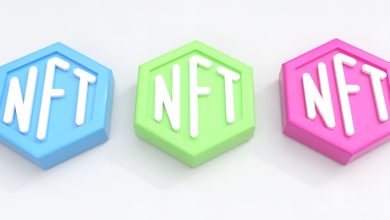Elrond (MultiversX): Scalable Blockchain for the Next Generation

- Understanding Elrond’s approach to scalability in blockchain technology
- Exploring the features of Elrond (MultiversX) that cater to the next generation of users
- The role of Elrond in shaping the future of decentralized finance
- Scalability solutions offered by Elrond for improved blockchain performance
- Comparison of Elrond with other blockchain platforms in terms of scalability
- Why Elrond (MultiversX) is considered a game-changer in the blockchain space
Understanding Elrond’s approach to scalability in blockchain technology
Elrond’s approach to scalability in blockchain technology is a key factor that sets it apart from other blockchain platforms. Elrond utilizes a unique architecture that enables it to process a significantly higher number of transactions per second compared to traditional blockchains. This is achieved through a combination of sharding and a secure proof-of-stake consensus mechanism.
Sharding allows Elrond to divide the network into smaller, more manageable parts called “shards.” Each shard is capable of processing transactions independently, which greatly increases the overall throughput of the network. Additionally, Elrond’s proof-of-stake consensus mechanism ensures that transactions are validated quickly and efficiently, further enhancing scalability.
By leveraging these innovative technologies, Elrond is able to achieve high levels of scalability without compromising on security or decentralization. This makes it an ideal platform for applications that require fast and cost-effective transactions, such as decentralized finance (DeFi) and online gaming.
Overall, Elrond’s scalable blockchain technology offers a promising solution to the scalability challenges faced by traditional blockchain platforms. With its unique approach to scalability, Elrond is well-positioned to support the next generation of blockchain applications and services.
Exploring the features of Elrond (MultiversX) that cater to the next generation of users
Elrond (MultiversX) offers a range of features that are specifically designed to appeal to the next generation of users. One key aspect is its scalability, allowing for fast and efficient transactions on the blockchain. This is essential for users who value speed and convenience in their digital interactions.
Another attractive feature of Elrond is its low transaction fees. This makes it cost-effective for users to engage with the platform, particularly important for those who are conscious of their spending. Additionally, Elrond’s security measures ensure that users can trust the platform with their data and assets, giving them peace of mind when using the blockchain.
Elrond also stands out for its user-friendly interface, making it easy for new users to navigate and understand. This accessibility is crucial for attracting the next generation of blockchain enthusiasts, who may not have as much experience with this technology. Overall, Elrond (MultiversX) offers a comprehensive blockchain solution that caters to the needs and preferences of the next generation of users.
The role of Elrond in shaping the future of decentralized finance
Elrond plays a crucial role in shaping the future of decentralized finance (DeFi) with its highly scalable blockchain technology. By offering fast transactions and low fees, Elrond is well-positioned to revolutionize the way financial transactions are conducted in the digital world. Its innovative architecture allows for high throughput and efficient processing, making it an ideal platform for a wide range of DeFi applications.
One of the key aspects of Elrond’s contribution to the DeFi ecosystem is its focus on interoperability. By enabling seamless communication between different blockchains, Elrond opens up new possibilities for cross-chain transactions and collaborations. This interoperability not only enhances the overall efficiency of the DeFi market but also promotes greater inclusivity and accessibility for users.
Furthermore, Elrond’s secure and scalable infrastructure provides a solid foundation for the development of a wide range of DeFi projects. From decentralized exchanges to lending platforms to stablecoins, Elrond’s technology can support a diverse array of financial applications. This versatility makes Elrond an attractive option for developers looking to build innovative DeFi solutions.
Scalability solutions offered by Elrond for improved blockchain performance
Elrond offers a range of scalability solutions to enhance the performance of its blockchain network. These solutions are designed to address the challenges of high transaction volumes and network congestion, ensuring smooth and efficient operation for users.
One key scalability solution provided by Elrond is Adaptive State Sharding. This innovative approach involves dividing the network into smaller shards, each capable of processing a subset of transactions. By distributing the workload across multiple shards, Elrond can significantly increase its transaction processing capacity, enabling faster and more efficient transactions.
Another important scalability solution offered by Elrond is Secure Proof of Stake (SPoS). This consensus mechanism leverages a randomly selected group of validators to confirm transactions and secure the network. By using a smaller group of validators, Elrond can achieve faster block finality and improve overall network performance.
Furthermore, Elrond has implemented a mechanism called Meta-Chain Architecture, which allows for interoperability between different shards. This architecture enables seamless communication and data transfer between shards, enhancing the scalability and flexibility of the network.
Overall, Elrond’s scalability solutions are designed to optimize blockchain performance and provide a seamless user experience. By leveraging innovative technologies and mechanisms, Elrond is paving the way for the next generation of scalable blockchain networks.
Comparison of Elrond with other blockchain platforms in terms of scalability
When comparing Elrond with other blockchain platforms in terms of scalability, it becomes evident that Elrond stands out for its innovative approach to solving the scalability issue. Unlike many traditional blockchains that struggle with slow transaction speeds and high fees, Elrond utilizes a unique architecture that allows for high throughput and low latency.
One of the key features that sets Elrond apart from other blockchain platforms is its use of Adaptive State Sharding. This technology enables the network to process transactions in parallel, significantly increasing the overall throughput of the system. In addition, Elrond employs a mechanism called Secure Proof of Stake (SPoS) to achieve consensus quickly and efficiently, further enhancing scalability.
When compared to popular blockchain platforms like Ethereum and Bitcoin, Elrond’s scalability is unmatched. Ethereum, for example, has been plagued by network congestion and high gas fees during periods of high demand, making it less than ideal for applications that require fast and affordable transactions. Bitcoin, on the other hand, has limited scalability due to its proof-of-work consensus mechanism.
Overall, Elrond’s scalability features make it a top contender for the next generation of blockchain platforms. Its ability to handle a large number of transactions quickly and cost-effectively sets it apart from its competitors, making it an attractive option for developers and users alike.
Why Elrond (MultiversX) is considered a game-changer in the blockchain space
Elrond, also known as MultiversX, is revolutionizing the blockchain space with its innovative approach to scalability and efficiency. Unlike traditional blockchain networks, Elrond uses a unique sharding technology that allows for parallel processing of transactions, significantly increasing the network’s throughput. This means that Elrond can handle a much higher volume of transactions compared to other blockchains, making it a game-changer in the industry.
Another key feature that sets Elrond apart is its adaptive state sharding mechanism, which dynamically adjusts the number of shards based on network usage. This ensures that the network remains efficient and secure, even as demand fluctuates. Additionally, Elrond’s secure proof-of-stake consensus mechanism further enhances the network’s performance and security, making it an attractive option for developers and users alike.
Furthermore, Elrond’s innovative architecture allows for fast transaction finality, with transactions being confirmed in a matter of seconds. This speed and efficiency make Elrond an ideal platform for decentralized applications (dApps) and smart contracts, opening up a world of possibilities for developers and businesses looking to leverage blockchain technology.
In conclusion, Elrond (MultiversX) is truly a game-changer in the blockchain space, offering unparalleled scalability, efficiency, and security. With its innovative features and high-performance capabilities, Elrond is paving the way for the next generation of blockchain technology.



